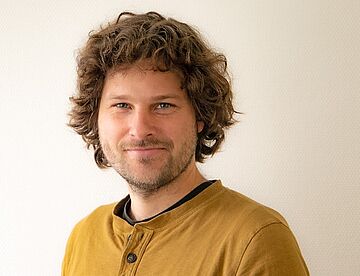Norm Setting and Decision Processes
The research group investigates which institutionalized decision processes exist in the application of rules of behavior with a general claim to validity in the digital space. It elaborates how these are to be normatively evaluated. Research topics here include autonomous systems and their institutional embedding as well as questions of the sustainability of digital processes.
The normative foundation of a digitizing society is undergoing a complex and manifold transformation. The aim of the research group is to explore and classify this change in descriptive and normative terms. One challenge in the research approach is the simultaneity of an enormous degree of detail and differentiation of individual developments on the micro and meso level as well as larger shifting movements on the level of society as a whole. The research group's leading question, with which these developments should be coherently grasped, is:
What institutionalized decision processes exist in the application of rules of behavior with a general claim to validity in the digital space? How are these to be normatively evaluated?
The research group thus focuses on decision processes. This is understood to mean generally established and formalized structures for making decisions about others. These can be court cases and administrative procedures, private arbitration, conflict management processes (e.g. on platforms), community-based moderation as well as scalable technical solutions (e.g. algorithmic decision-making systems). Finally, it is often hybrids of the described human and technical processes that lead to decisions about third parties. These also include the processes of influencing human decision procedures by affordances of the decision context on the one hand, and the cognitive preconditions, on the other hand.
The focus thus allows to coherently address three areas of tension in their breadth:
- Human/Technical Actors: The increasing application possibilities and complexities of technical decision-making procedures raise important questions of self-determination. This is where technical development, social conventions, cognitive processes, and legal norms meet. The research group relates human and technical decision-making procedures and classifies them and their effects. For example, procedures for content moderation or complaint management on platforms.
- State/Private Action: With digital markets and platforms, private actors are increasingly assuming regulatory competencies. Particularly around intangible goods, be it cultural products, protectable capital goods or high-quality data sets, judgment and decision-making competencies are shifting. Against this background, questions of sustainability of digital processes also play a significant role. The research group comprehensively addresses the socio-economic implications of such processes and takes a legal position on them.
- Descriptive/normative starting point: The empirically observable phenomena of digitalization in the area of rule application can be described from a social science perspective and normatively classified from a legal perspective. The cooperation of these disciplines, with their common interest in rules, conventions and coordination, is particularly suitable for producing decidedly interdisciplinary findings that can be communicated in science and society and sometimes lead to concrete regulatory proposals or the (impact) assessment of legislative proposals.
Research Group Members
-

Prof. Dr. Herbert Zech
Director, Principal Investigator
-

Simon Schrör
Research Group Lead
-

Jana Pinheiro Goncalves
Research Group Coordinator
-

Antonia Bass
Student Assistant
-

Jonathan Baumer
Student Assistant
-

Jasmin Bernardy
Student Assistant
-

Melina Braun, LL.B.
Research Associate
-

Sofya Emchenko
Student Assistant
-

Rita Gsenger
Research Associate
-

Alexandra Keiner
Research Associate
-

Mariam Sattorov
Student Assistant
Associate Researchers
-

Prisca von Hagen
Associate Researcher
-

Marek Jessen
Former Associate Researcher
-

Prof. Dr. Wolfgang Kerber
Associate Reearcher
-

Dr. Irma Klünker
Associate Researcher
-

Dr. Lucas Lasota
Associate Researcher
-

Lisa Markschies
Associate Researcher
-

Ferdinand Müller
Associate Researcher
-

Lea Ludmilla Ossmann-Magiera, LL.M.
Associate Researcher
-

MLaw Pablo Schumacher
Associate Researcher
-

Dr. Peter R. Slowinski, J.S.M. (Stanford)
Associate Researcher